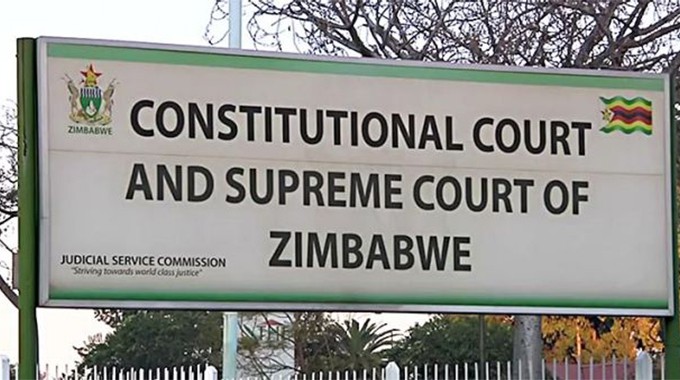Leader of the Nationalists Alliance Party (NAP), Divine Mhambi Hove, has taken Parliament to the Constitutional Court challenging the exorbitant election nomination fees.
Hove argues that the Parliamentary Legal Committee (PLC) failed to examine the Statutory Instrument (SI) establishing the nomination fees or, if it did, failed to see the charges are unconstitutional.
The Zimbabwe Electoral Commission gazetted SI 144 of 2022 on the Electoral (Nomination of Candidates) (Amendment) Regulations, 2022 (No.1) in August last year, increasing presidential nomination fees from US$1 000 to US$20 000.
The nomination fees for National Assembly and Senate candidates also increased from $50 to $1 000.
Represented by Lovemore Madhuku lawyers, Hove said the Constitutional Court, which received this case on March 29, 2023, has the jurisdiction to determine whether Parliament has failed to fulfill a constitutional obligation.
He does, however, believe Parliament has already failed to fulfill its constitutional obligation, through the PLC by examining every SI published in the Gazette and considering whether any provision of the SI contravenes any constitutional provisions.
“The constitutional obligation I believe Parliament has failed to fulfill is the obligation in Section 152 (3) of the Constitution of examining every SI published in the gazette. The obligation was not fulfilled in respect of SI 144 of 2022 which was published in the gazette dated August 19, 2022,” he said.
“Parliament did not examine or consider whether any provision of SI 144 of 2022 contravenes any provision of the Constitution.”
Hove argued the words “examine” and “consider” require Parliament to take a serious view of the imperative to protect Zimbabwe’s constitution.
“A casual or lackadaisical approach to SIs does not meet the standards of ‘examine’ and ‘consider’ within the contemplation of Section 152(3) (c) of the Constitution,” he noted.
The NAP leader submitted that Section 152(3) (c) of the Constitution is a fundamental requirement that raises concerns about the separation of powers and requires Parliament to exercise sensitive political judgment.
“In undertaking the task inherent in the constitutional obligation, Parliament would be providing checks against the work of the executive organ of State that would have enacted the SI in question,” Hove argued, claiming the PLC failed to fulfill this constitutional obligation in two ways.
“First, I am unaware of any report by the PLC that records that SI 144 of 2022 went through the procedure in Section 152 (3) (c) of the Constitution. If it turns out that SI 144 of 2022 did not go through the procedure in Section 152 (3) (c) of the Constitution that would be a textbook failure to fulfill a constitutional obligation,” said the NAP leader.
“Secondly, and as an alternative, if SI 144 of 2022 went through the procedure in Section 152 (3) (c) of the Constitution, the fact that Parliament did not consider that it infringed the rights of citizens provided for in and protected by Section 67 of the Constitution is evident of a failure to ‘examine’ and ‘consider’ within the contemplation of Section 152 (3)(c) of the Constitution.”
Hove noted that if SI 144 of 2022 went through the procedure outlined in Section 152(3)(c) of the Constitution and was found to be consistent with the Constitution by Parliament, he would conclude Parliament took a casual or lackadaisical approach to the SI, failing to meet the standards of ‘examine’ and ‘consider.’
“No reasonable Parliament performing the obligation would have failed to consider that regulations in SI 144 of 2022 were manifestly unconstitutional for infringing the rights of citizens in Section 67 of the Constitution.”
In requiring presidential candidates to pay US$20 000, Hove said that infringes political rights.
“US$20 000 can only be afforded by the rich or those funded by the rich. This undermines the right in Section 67 (3) (b) of the Constitution, of ordinary citizens to stand for election. Only the rich or those funded by the rich can exercise that right,” said the NAP leader.
Hove stated he is an ordinary citizen who cannot afford to spend US$20 000 to run for president, nor can members of his political party afford US$1 000 to stand as MPs.


Leave a comment